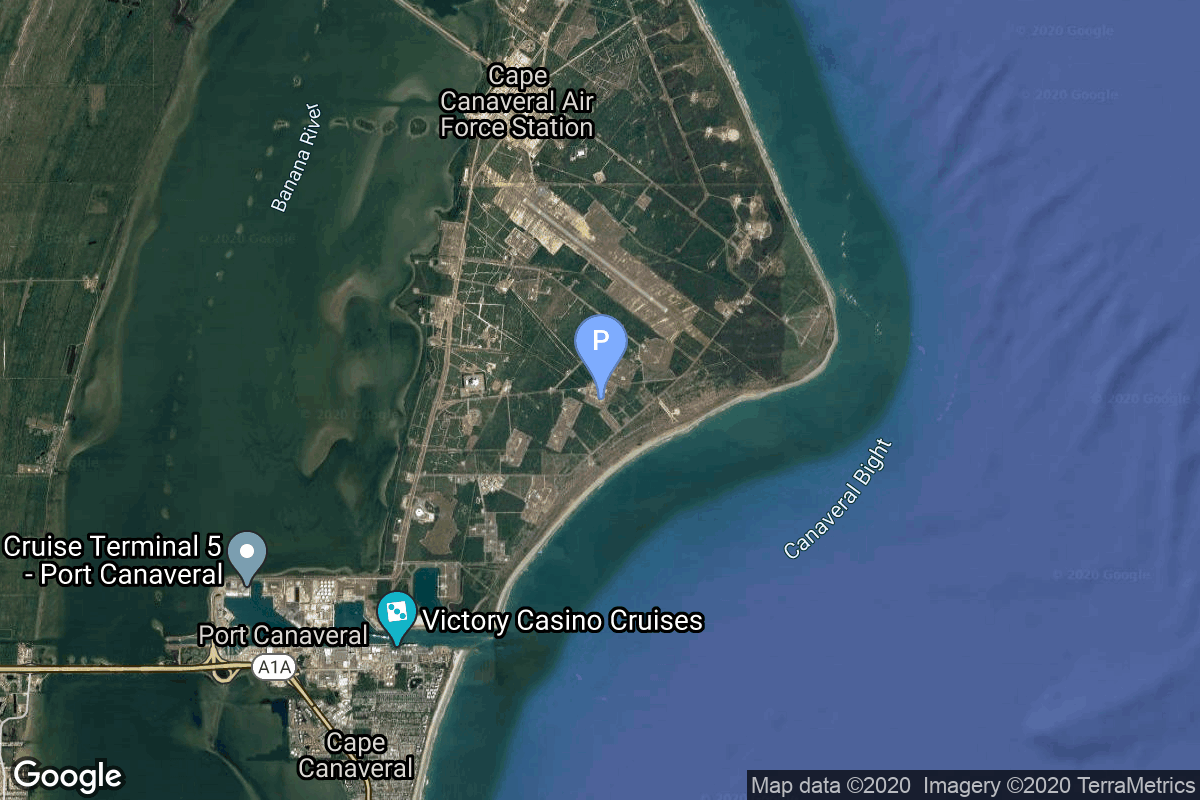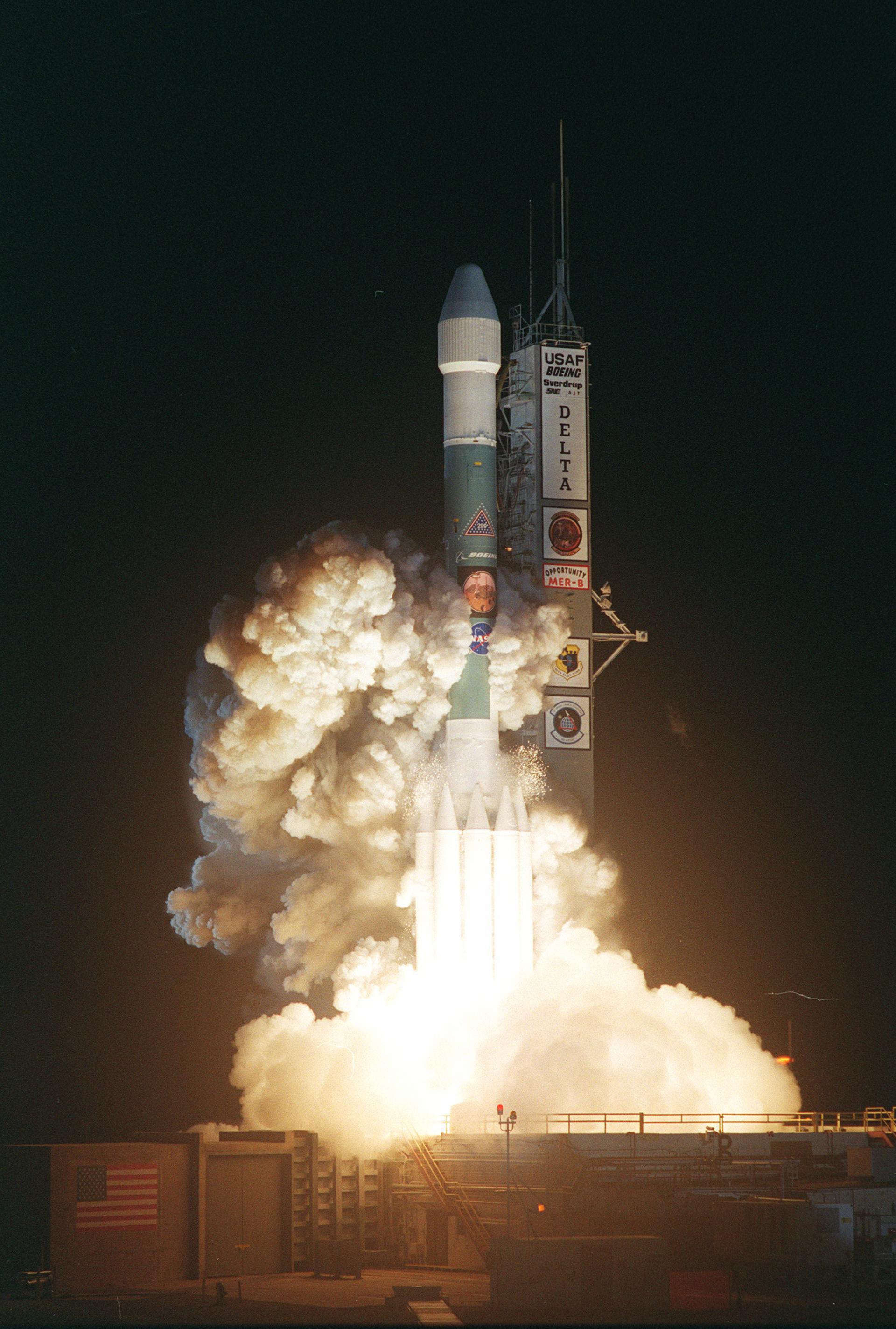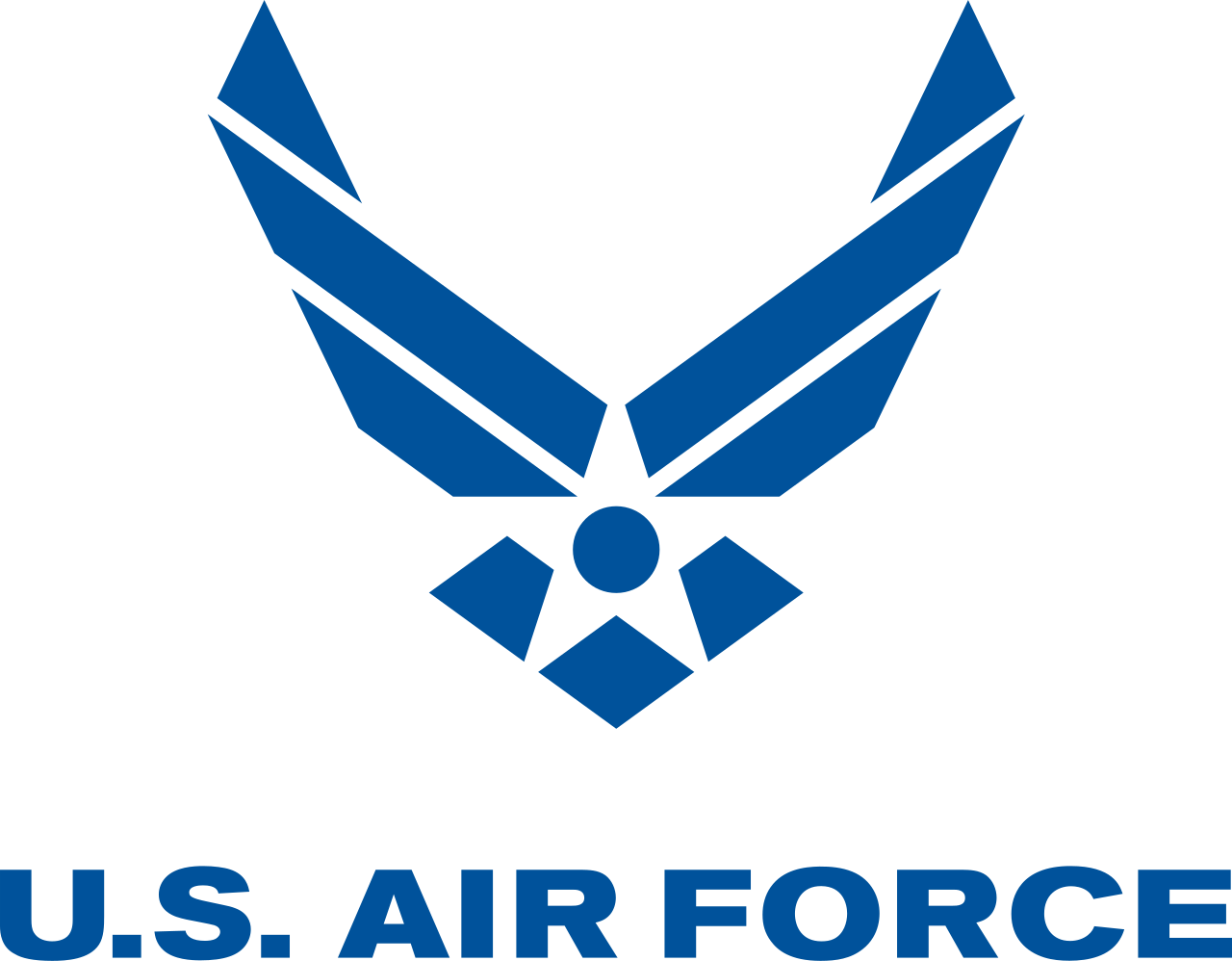Opportunity Rover
Delta II
United States Air Force
Mission
Opportunity Rover
- Type: Planetary Science
- Orbit: Heliocentric N/A
- Launch Cost: $51,000,000
Opportunity, also known as MER-B or MER-1, and nicknamed “Oppy”, is a robotic rover that was active on Mars from 2004 until the middle of 2018. Opportunity was able to stay operational for 5111 sols after landing, maintaining its power and key systems through continual recharging of its batteries using solar power, and hibernating during events such as dust storms to save power. Due to the planetary 2018 dust storm on Mars, Opportunity ceased communications on June 10 and entered hibernation on June 12, 2018. It was hoped it would reboot once the weather cleared, but it did not, suggesting either a catastrophic failure or that a layer of dust had covered its solar panels.
Location
Space Launch Complex 17B
Cape Canaveral, FL, USA
Space Launch Complex 17B has witnessed the launch of 132 rockets, including 132 orbital launch attempts, while Cape Canaveral, FL, USA, has been the site for 940 rocket launches.
Rocket
United Launch Alliance Delta II 7925H-9.5
Delta II is an American space launch system developed by McDonnell Douglas, now part of the Delta rocket family operated by United Launch Alliance. With more than 150 missions and a nearly perfect track record, Delta II has established itself as one of the most successful orbital launch systems.
Agency
United States Air Force
The United States Air Force (USAF) is the air service branch of the United States Armed Forces, and is one of the eight uniformed services of the United States. Originally created on 1 August 1907, as a part of the United States Army Signal Corps, the USAF was established as a separate branch of the United States Armed Forces in 1947 with the enactment of the National Security Act of 1947.


